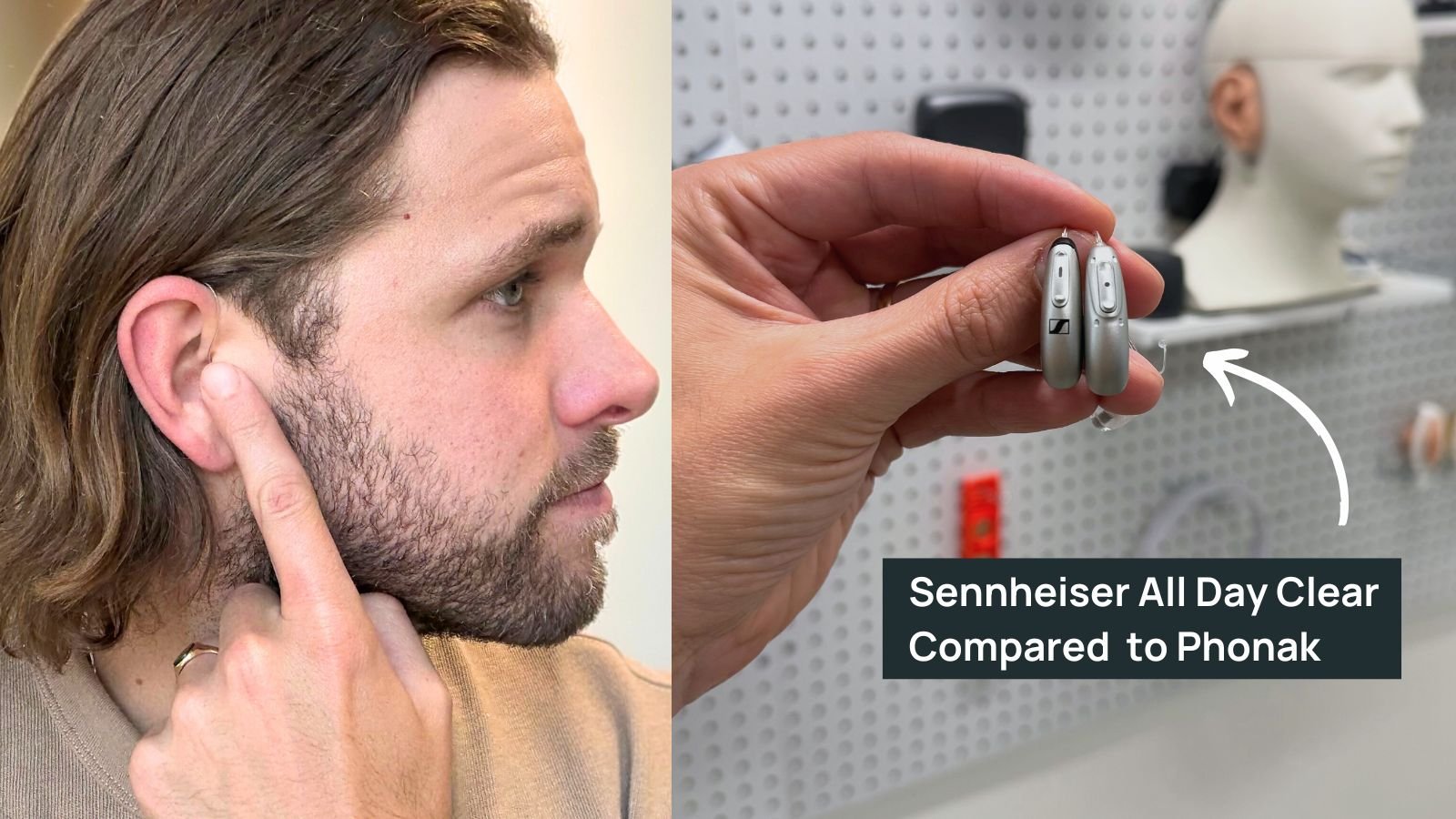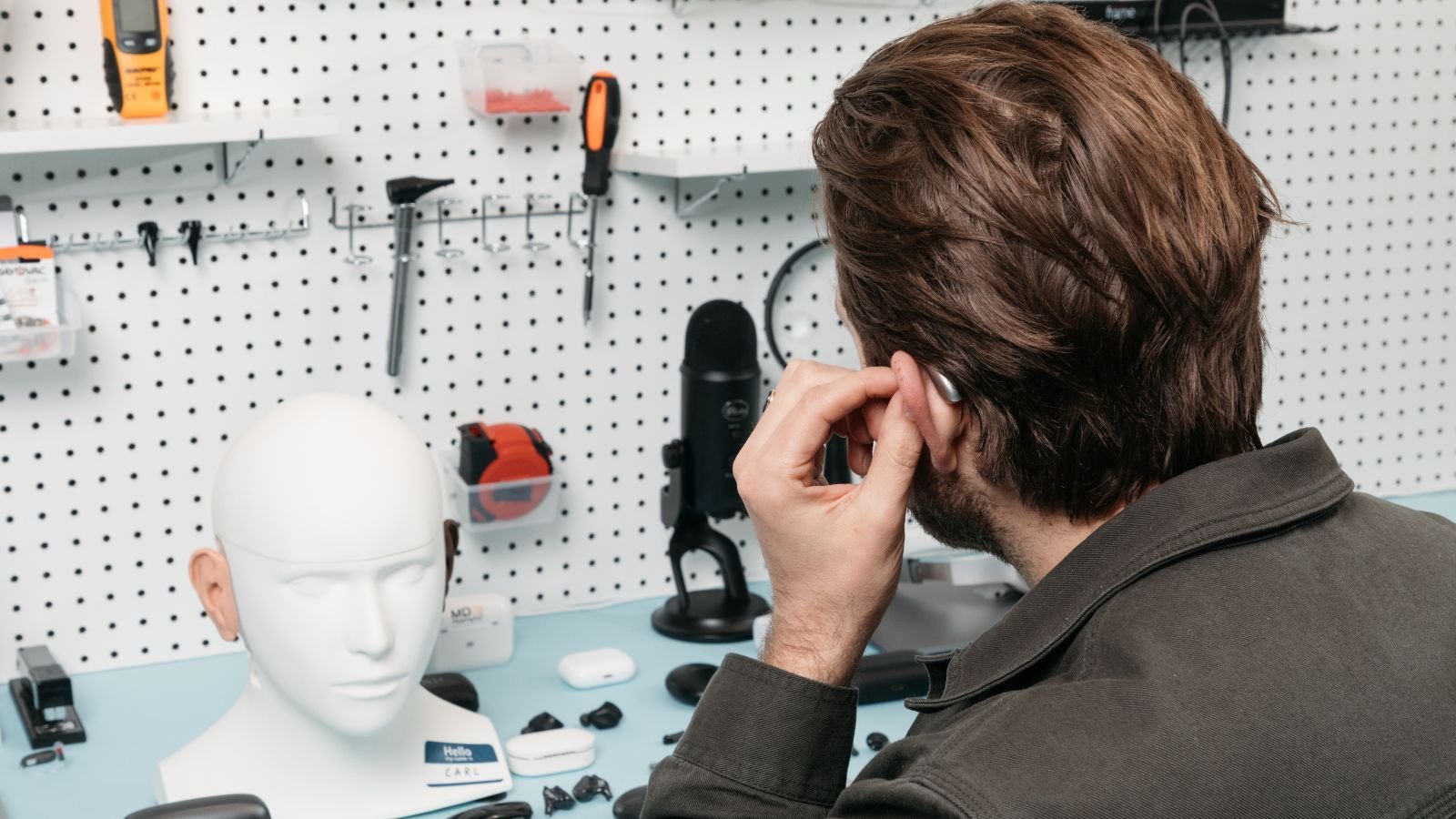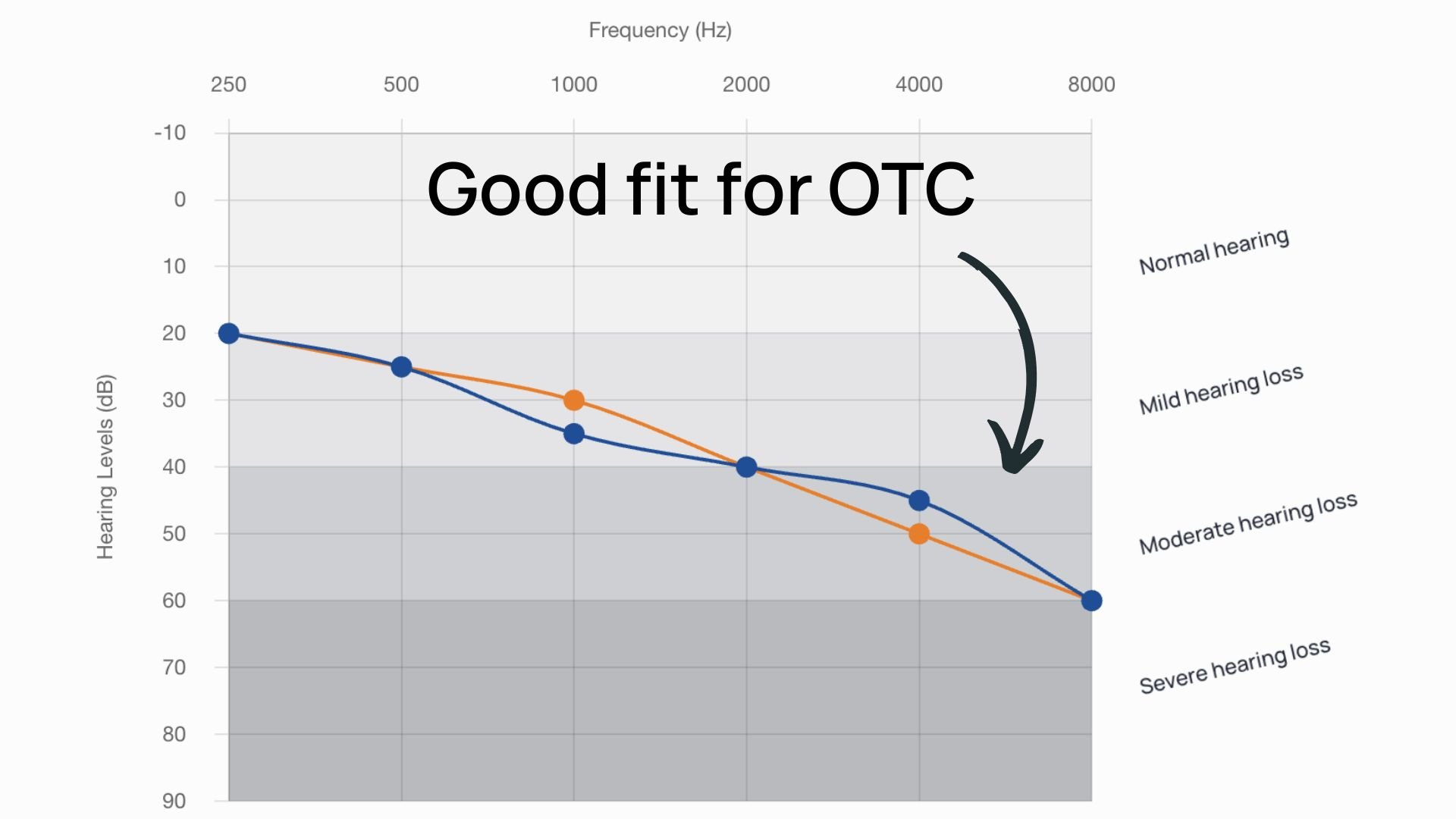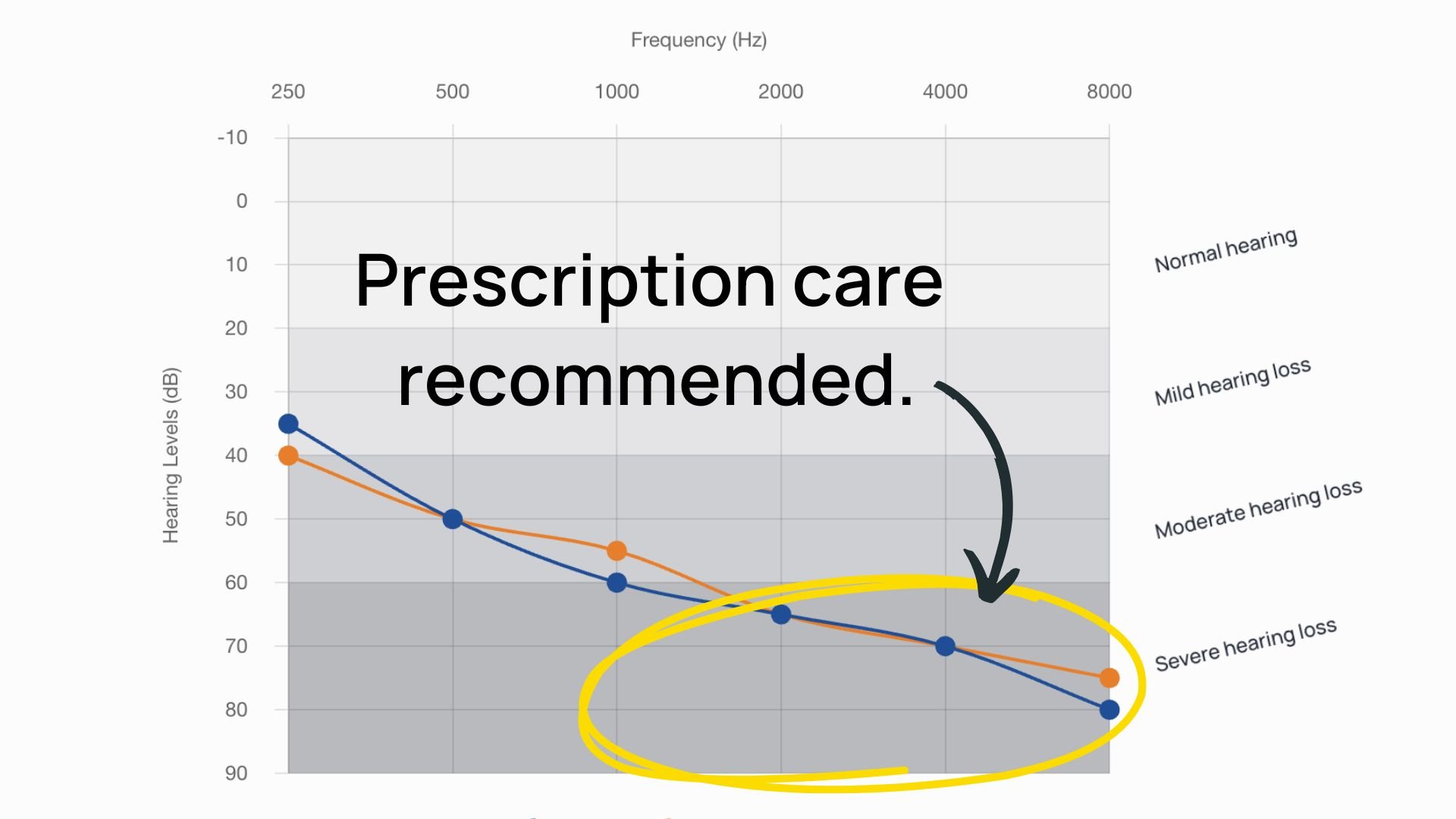When it comes to choosing between prescription and over-the-counter (OTC) hearing aids, the decision is deeply personal—but it doesn’t have to be overwhelming. With the right information, most people can confidently choose a path that fits their hearing needs, budget, and lifestyle.
At Soundly, we’ve tested and compared hundreds of devices and spoken with thousands of people navigating this decision. In this guide, we’ll break down one of the most important questions in hearing health: Are prescription or over-the-counter hearing aids right for you?
Prefer to watch?
Fast Facts: OTC vs. Prescription Hearing Aids

Availability
- OTC: Available online (including here at Soundly.com) or in local stores without a prescription.
- Prescription: Only available through a licensed hearing professional or clinic.
Who They're For
- OTC: Adults (18+) with mild to moderate hearing loss.
- Prescription: Suitable for all levels of hearing loss, including severe and complex cases.
Fitting Process
- OTC: Self-fitting using a smartphone app. No clinic visits required.
- Prescription: Fitted by a hearing care professional using in-booth testing and proprietary software.
Technology
- OTC: Top brands (like Sony and Sennheiser) offer tech nearly identical to prescription versions.
- Prescription: Broader range of customization options—especially for more complex needs.
Sound Output
- OTC: Capped at 117 dB max output (FDA limit for safety).
- Prescription: Can provide higher amplification for more severe loss, tailored to individual needs.
Cost
- OTC: Typically around $500–$1,000 per pair.
- Prescription: Usually ranges from $3,000–$7,000 per pair, including professional services.
Support
- OTC: Customer support + optional virtual setup calls (like those included at Soundly).
- Prescription: Ongoing, in-person support from an audiologist or hearing specialist.
How to Choose

1. Start With Your Hearing Loss
OTC hearing aids are a safe, effective option for mild to moderate hearing loss—that’s what they’re designed for, and that’s where they shine. But if your hearing dips into the severe range, or your audiogram shows complex patterns, a prescription fit with a professional is usually the better route.
That’s why taking a hearing test first is essential—whether that’s in a clinic or through our online hearing test at Soundly.com. Your audiogram will help you understand if OTC hearing aids are a good option.
If you need a second opinion on our test, reach out to us directly here on the site! We are happy to talk through your options.
Let’s look at a couple of examples. This first chart shows a typical sloping hearing loss in the mild to moderate range—an ideal fit for OTC hearing aids.

This second example shows a more severe hearing loss, likely beyond the volume limits allowed in OTC hearing aids. In this case, we’d recommend exploring prescription options.

2. Both Paths Can Lead to Great Results
In-clinic hearing aids are custom-fit by professionals using booth testing and software tuning. OTC hearing aids—especially quality brands like Sony, Sennheiser, and Bose—can be self-programmed at home using an app.
Surprisingly? Outcomes are often very similar, especially for people in the mild-to-moderate range. Peer-reviewed studies back this up. The main difference isn’t sound quality—it’s who you want helping you along the way: a professional in person, or yourself using your phone.
3. Price Is a Major Difference
Prescription hearing aids with professional fitting typically cost $3,500–$7,000 per pair, bundled with clinic visits and support.
Top OTC options like the Sennheiser All Day Clear or Sony CRE-C20 are around $1,000 per pair, and include app-based setup and a generous return window (100 days for Sennheiser).
That price gap reflects the support model, not necessarily a huge technology gap. In many cases, the underlying tech is nearly identical, especially when the same manufacturer makes both products.
4. Technology Isn’t Always the Differentiator
People often ask: Are prescription hearing aids better than OTC ones? The answer: sometimes yes, sometimes no.
Top-tier OTC devices use most of the same chipsets and processing algorithms as their prescription counterparts. The biggest differences show up at the lower end of the OTC market—think $200 Amazon hearing aids—which often lack proper noise reduction, comfort, or form factor.
If you’re going OTC, we strongly recommend sticking to trusted brands with real R&D behind them—like Sony, Sennheiser, Bose, or Eargo.
5. Your Preferences Matter
If you like technology, independence, and a hands-on approach, OTC hearing aids can be empowering and cost-effective. If you prefer hands-on guidance, professional setup, and ongoing in-person care, prescription hearing aids are likely the better path.
Final Thoughts
Choosing between prescription and over-the-counter hearing aids comes down to your hearing needs, your comfort with technology, and the level of support you’re looking for. Both options can lead to great outcomes—what matters most is finding the right fit for you.
If you’re just starting out, we recommend taking a few minutes to complete our free online hearing test. It’s a quick and easy way to understand your hearing profile and see whether OTC or prescription hearing aids are the better match.
👉 Take the hearing test to get started.
Still have questions? Our team is here to help you compare options, walk through results, and guide you toward the right next step.



.jpg)


